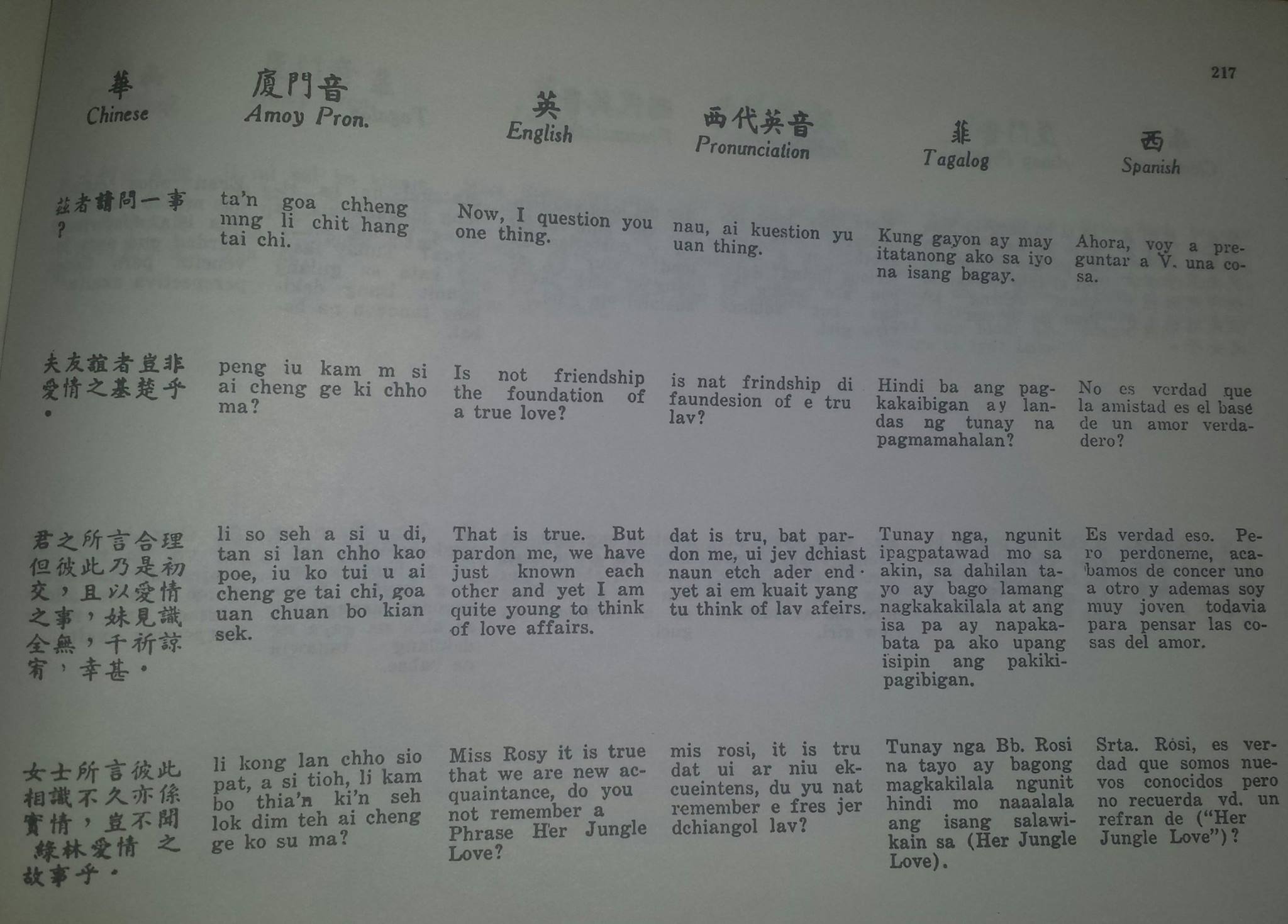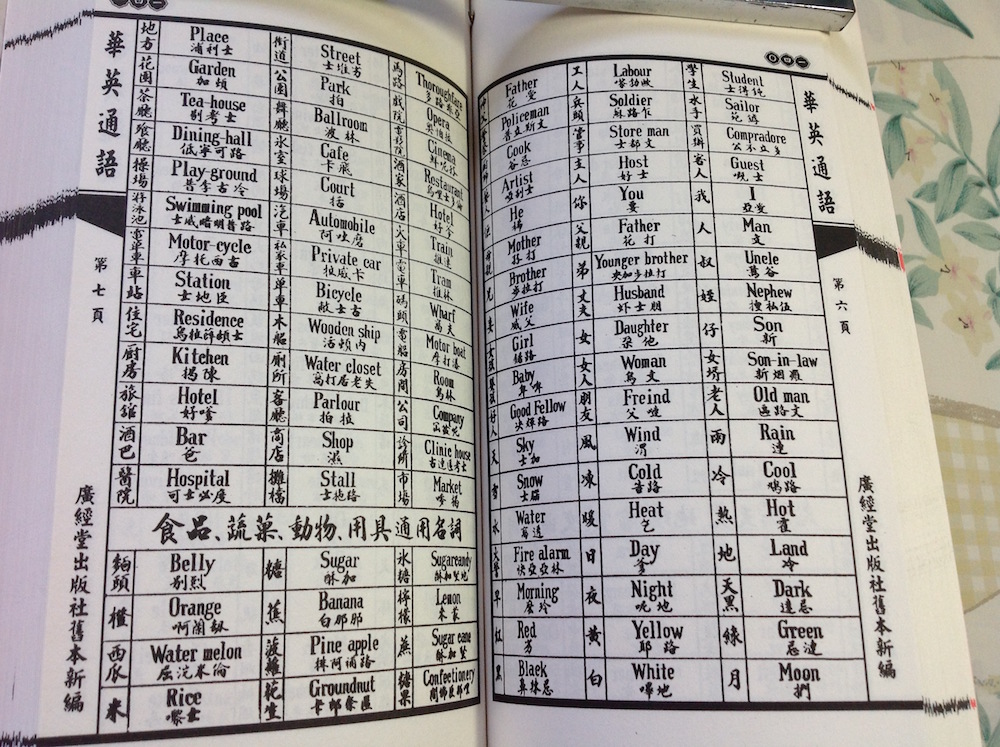Archive for Topolects
January 29, 2017 @ 8:38 am· Filed by Victor Mair under Borrowing, Diglossia and digraphia, Language and computers, Style and register, Topolects, Translation
The inability of Google Translate, Microsoft Translator, Baidu Fanyi, and other translation services to correctly render jī nián dàjí 鸡年大吉 ("may the / your year of the chicken be greatly auspicious!") in various languages points up a vital distinction that I have long wanted to make, and now is as good a time as ever. Namely, just as you could not expect these translation services to handle Cantonese, Shanghainese, Taiwanese, etc. (unless specifically and separately programmed to do so), we should not expect them to deal with Literary Sinitic / Classical Chinese (LS / CC).
Read the rest of this entry »
Permalink
January 17, 2017 @ 9:26 am· Filed by Victor Mair under Pronunciation, Tones, Topolects
Distinguishing between "four" and "ten" in rapid, slurred Modern Standard Mandarin (MSM) is not always easy: sì 四 vs. shí 十. Try saying sìshísì 四十四 ("forty-four") quickly and it starts to feel like the beginning of a tongue twister. Now, when speakers from the various topolects, even within the so-called Mandarin group, come together and tones, vowels, and consonants start flying off in all directions, things can become still hairier and sometimes even costly.
Read the rest of this entry »
Permalink
January 9, 2017 @ 8:09 pm· Filed by Victor Mair under Dictionaries, Pedagogy, Topolects
[This is a guest post by Silas S. Brown]
It seems a few native Cantonese speakers employed in the production of Cantonese language courses are quite happy to read out Mandarin vocabulary with Cantonese pronunciation, rather than the actual native Cantonese versions of the words, and I can't help wondering why.
Read the rest of this entry »
Permalink
December 5, 2016 @ 8:00 am· Filed by Victor Mair under Language and literature, Topolects, Vernacular, Writing systems
In "Inside the world of Chinese science fiction, with 'Three Body Problem' translator Ken Liu" (Quartz, 12/2/16), Nikhil Sonnad conducts an interview with the sci-fi author and translator of the Sān tǐ 三体 (Three-Body [Problem]) series by Liú Cíxīn 刘慈欣.
Read the rest of this entry »
Permalink
November 25, 2016 @ 10:55 am· Filed by Victor Mair under Dialects, Language change, Language extinction, Topolects, Variation
Reports of the death of languages and the extinction of languages are alarmingly routine, but before a language dies out entirely, when it is endangered, its dialects die off one by one.
"Last native speaker of Scots dialect dies" (10/6/12)
Dialect Death: The case of Brule Spanish (1997)
The list of publications documenting the dead and dying dialects could go on for many pages: I lament each and every one of them.
Read the rest of this entry »
Permalink
November 21, 2016 @ 1:30 pm· Filed by Victor Mair under Classification, Dialects, Etymology, Grammar, Morphology, Phonetics and phonology, Topolects, Writing, Writing systems
Many of the debates over Chinese language issues that keep coming up on Language Log and elsewhere may be attributed to a small number of basic misunderstandings and disagreements concerning the relationship between speech and writing.
Read the rest of this entry »
Permalink
November 17, 2016 @ 9:53 am· Filed by Victor Mair under Lexicon and lexicography, Multilingualism, Topolects, Transcription, Translation
Page of a phrasebook published in 1941 (click to embiggen):

Read the rest of this entry »
Permalink
November 15, 2016 @ 3:13 pm· Filed by Victor Mair under Bilingualism, Lexicon and lexicography, Topolects, Transcription
Ryan of Singapore sent me photographs of a section from a Chinese almanac that amounts to a ten-page English phrasebook phonetically annotated in Cantonese. Here are two of the pages (as usual, click to embiggen):

Read the rest of this entry »
Permalink
October 19, 2016 @ 8:27 am· Filed by Victor Mair under Names, Topolects, Transcription, Variation, Writing systems
We have already studied an old name for Singapore on the back of an envelope dating to 1901:
Now, Ruben de Jong, relying on the works of Dutch scholars, has discovered several others.
Read the rest of this entry »
Permalink
September 28, 2016 @ 5:46 pm· Filed by Victor Mair under Language and advertising, Names, Numbers, Slang, Topolects
Here we go again:
"Samsung’s Galaxy On7 goes official" (Marketing-Interactive, 9/28/16)
As we’ve covered shortly two weeks ago, the pronunciation of “7″ sounds like “penis” in Cantonese, and the latest Samsung Galaxy On7 launch has once again stirred up discussion on the internet in Hong Kong.
The Cantonese pronunciation of “On9″ [sic: there seems to be a mix-up here] is similar to slang meaning “stupid”, and many are saying the new release is a crossover between the two slang words.
Read the rest of this entry »
Permalink
September 20, 2016 @ 5:50 pm· Filed by Victor Mair under Topolects, Writing, Writing systems
[This, a guest post by Lañitri Kirinputra, is the fourth and last in a series of four posts on Hokkien and related Southern Min / Minnan language issues. The first was "Eurasian eureka" (9/12/16), the second was "Hokkien in Singapore" (9/16/16), and the third was "Hoklo" (9/18/16).]
Read the rest of this entry »
Permalink
September 18, 2016 @ 11:07 am· Filed by Victor Mair under Names, Topolects
[This is the third in a series of four planned posts on Hokkien and related Southern Min / Minnan language issues. The first was "Eurasian eureka" (9/12/16) and the second was "Hokkien in Singapore" (9/16/16).]
Some names for Taiwanese language in MSM:
Táiyǔ 台語 ("Taiwanese")
Táiwānhuà 台灣話 ("Taiwanese")
Fúlǎo 福佬 / Héluò 河洛 ("Hoklo")
Read the rest of this entry »
Permalink
September 16, 2016 @ 8:42 am· Filed by Victor Mair under Borrowing, Multilingualism, Topolects
[This is the second in a series of four planned posts on Hokkien and related Southern Min / Minnan language issues. The first was this: "Eurasian eureka" (9/12/16).]
Ryan of Singapore writes:
Just a few days ago, Singapore's Ministry of communications and information released a set of TV programs, aimed at seniors. It is halfway between a drama and a "public information" broadcast. What may interest you most is that it is in Hokkien, that long overlooked dialect / topolect.
Read the rest of this entry »
Permalink

